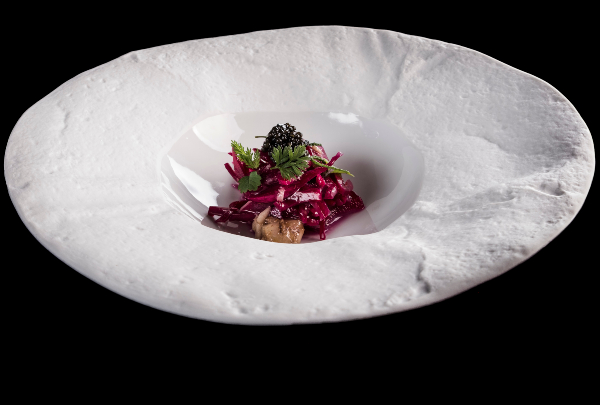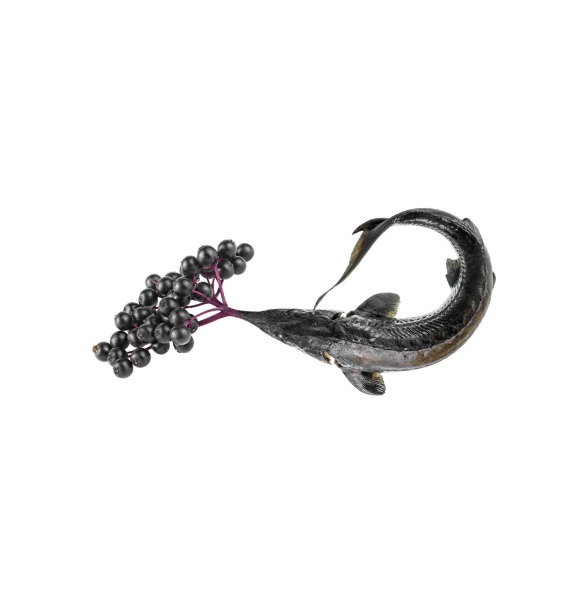Interview
Diego Rossi: ‘Produce is at the forefront, manipulated as little as possible’
.jpg)
A few years ago, a singular trattoria revolutionised Milan’s gastronomic landscape. Trippa.
Behind this shift is Diego Rossi, a passionate cook tired of the fussiness and formality which, he believes, conditions diners and limits what you can do with cooking. And so, he set up Trippa, ‘a place to enjoy top-quality produce prepared with insight and in casual surroundings.’
The start of Diego Rossi’s story is similar to that of many of his colleagues: a passion for cooking, going to cooking school, working at great restaurants (Bauer, in Venice; St. Hubertus, with Norbert Niederkofler; and at the Delle Antiche Contrade restaurant, in Cuneo), and a goal of opening his own place. This is where his story begins to diverge. Rossi was familiar with the demands of haute cuisine and its limits, something he didn’t want to repeat with his own project, and is why he decided to bring back a popular traditional Italian eatery offering mindful authentic food. A trattoria. Trippa. This is his path. It is something that comes from within, is bound to the self and a particular land, stirring, challenging and provoking us. Right in the belly.
‘I felt we needed a place like Trippa. A simple idea, but that doesn’t mean it’s superficial.’ That’s how Rossi remembers the beginnings of Trippa, a ‘revolution that was born without knowing what it would become.’ Trippa means two things to this Veronese chef: on the one hand, it means tripe, ‘found in at least one recipe in every region in Italy,’ but in Italian it also refers ‘to something concrete, solid.’ As solid as his idea, now a place of pilgrimage for many and where it’s not only hard to find a table, but even to book one. With respect for produce as the cornerstone of his cooking, this moustachioed chef has put together a culinary offer that is ‘simple, based on seasonality and improvisation.’ The menu is not a starting point, it’s an end point. Changing every day, they improvise in the kitchen depending on what’s available at the market, and if a dish runs out, too bad. Better luck another day. In fact, the trattoria only opens in the evenings. This allows the whole team to devote part of the day to seeking out ingredients; these – depending on what they find – are used to create the dishes for dinner. The produce shapes what is offered.
‘Ingredients and their characteristics are at the core of my philosophy. I tend to put them at the forefront, highlight them and keep them as pure as possible. One of the most important qualities for a cook is mindfulness, in other words, the ability to bring out the best of every ingredient without losing its essence.’ Diego Rossi understands mindfulness as being synonymous with unpretentiousness: ‘I’m tired of sophistication.’ He believes that ‘to create a gastronomic culture we have to speak directly to people, often in search of great quality but without the frippery attached to fine dining.’ According to Rossi, quality goes hand in hand with the growers and producers with whom you have to have ‘a relationship of faith and trust’ that allows both sides to ‘work with passion and the goal of always improving.’
If produce and its seasonality are one of the cornerstones on which Trippa is built, the other is respect for the environment. Rossi’s take on this is a belief in zero waste. At Trippa, nothing is thrown away, everything that is usable is used. ‘We use every single part of an animal, even those that are hardest to use; this shows respect for this life that has been sacrificed.’ An ethical commitment that also extends to the plant world, in this case ‘trying to rediscover and use lesser known vegetables, while at the same time making people aware of eating produce in season.’ He can’t help showing his fondness for greens. ‘Personally, I haven’t eaten meat for years,’ and he enjoys filling the restaurant’s menu with seasonal vegetables but without forgetting his carnivorous customers, although always ‘making them mindful about eating less meat and creating awareness about it.’
Sustainable food on the plate, but he’s also sustainable with those he works with. In addition, Diego Rossi has managed to achieve a work-life balance in the kitchen because ‘after spending years in kitchens where we worked 15 or 18 hours a day, I decided to change this paradigm so that we could also have a life away from the kitchen.’ Meal service at Trippa has been organised in such a way that they only open in the evenings, and can thus be adapted to an eight-hour work day. Rossi recognises that the location of his trattoria – in Milan’s city centre – allowed them to only open in the evening, but he is a staunch believer in ‘rethinking the work hours of restaurant workers so that their lives are more sustainable and balanced.’ Just as he is doing with the food he cooks.
The revolution has begun and it looks sure to have many followers.

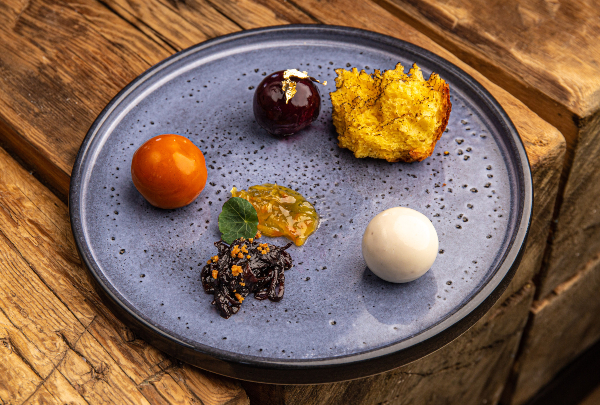
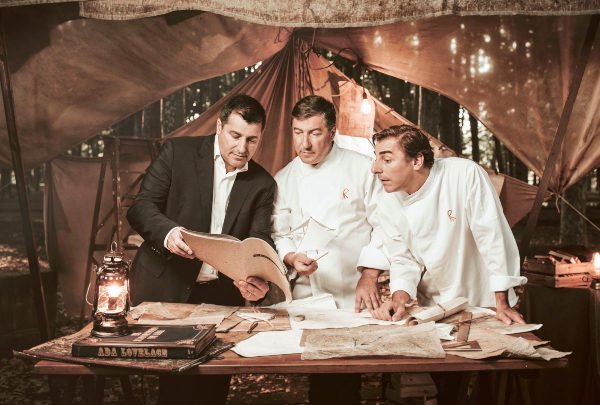
 600x405.jpg)

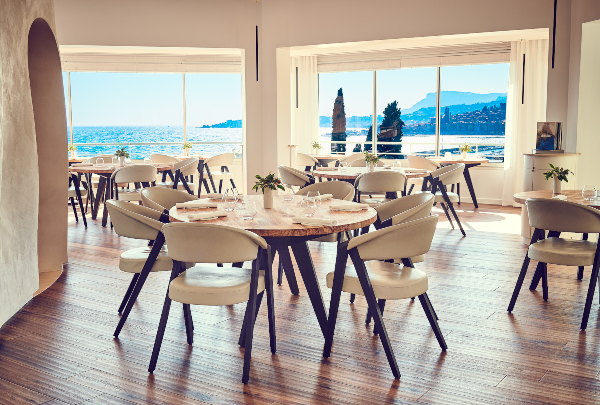
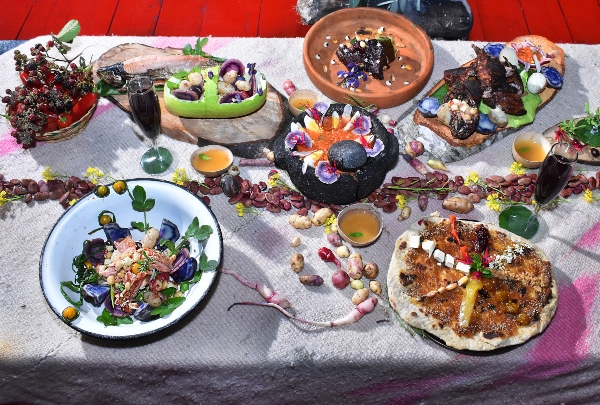
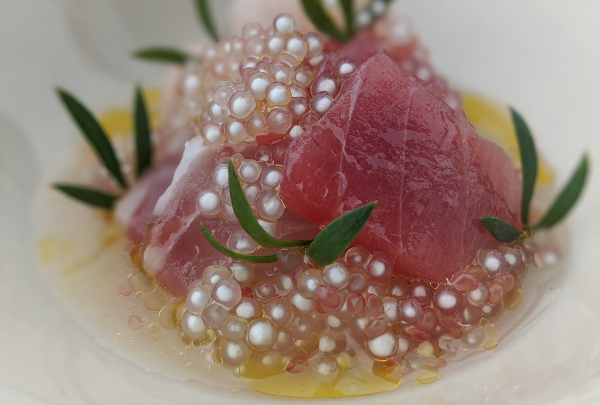
600x405.jpg)
.jpg)
